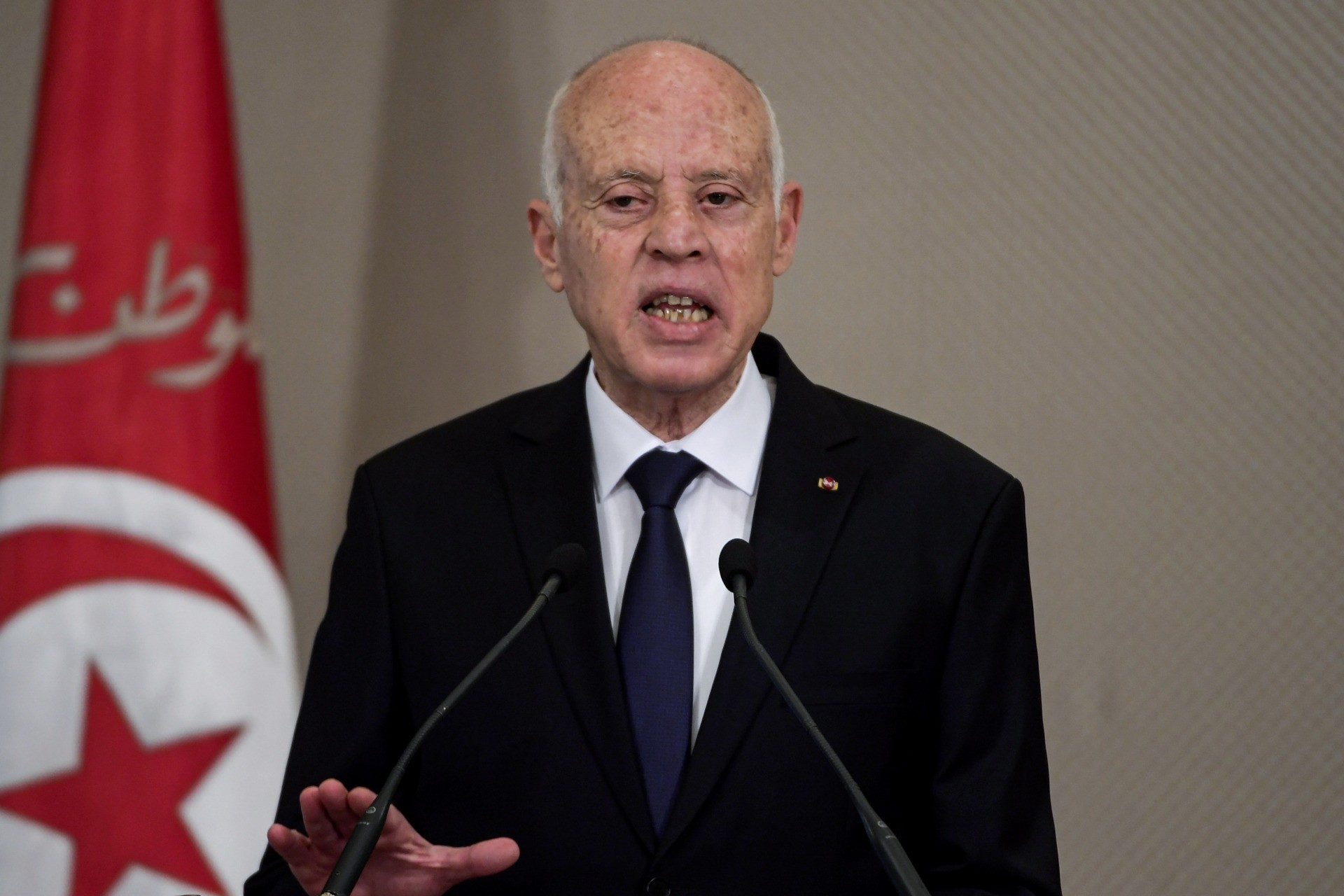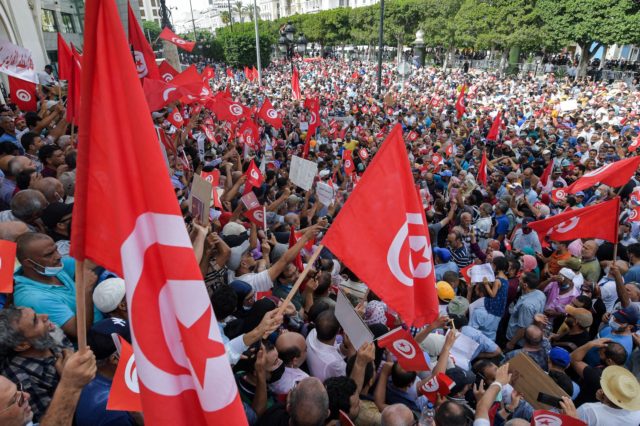One-hundred-thirteen senior officials from Tunisia’s opposition Ennahda party resigned on Saturday, protesting President Kais Saied’s increasingly dictatorial rule and their own party leadership’s poor response to it. Thousands of demonstrators rallied in the capital of Tunis on Sunday to demand Saied’s resignation.
63-year-old Kais Saied was elected president in 2019 on a populist reform platform. Frequently described as “austere,” an “outsider,” and an “academic,” he was a TV legal analyst before running for the presidency.

Tunisia’s President Kais Saied speaks during the new government swearing-in ceremony at Carthage Palace on the eastern outskirts of the capital Tunis. (FETHI BELAID/AFP via Getty Images).
Saied amassed more and more power over the ensuing two years, insisting Tunisia’s institutions were hopelessly corrupt, so the necessary reforms could only be implemented through executive orders.
In July, Saied dismissed Prime Minister Hichem Mechici, suspended the Tunisian parliament, and stripped lawmakers of their immunity to prosecution, sparking allegations of a political purge. He extended the suspension of Parliament in August, dismissing the legislature as a “danger to the state.” He promised last week to appoint a prime minister to replace Mechichi, but has not yet done so.
“How can they be representatives of the people while their votes in parliament are bought and sold and sittings are paused so the price can be agreed?” Saied said last week to a crowd of supporters, who chanted for the permanent dissolution of parliament.
Last week Saied strengthened the powers of the presidency again, announcing that he would rule by decree and establishing a “Council of Ministers” to implement his orders.
Saied’s foil throughout his presidency has been the Ennahda party, the most powerful party within the ruling coalition before Saied’s election. Frequently described as “moderate Islamists” by foreign media, Ennahda was outlawed by strongman ruler Zine el-Abidine Ben Ali, who became the first authoritarian ruler to be overthrow by the “Arab Spring” movement in 2011.
Ennahda picked up its “moderate Islamist” reputation around 2016, when the party announced that improving Tunisia’s democracy and government would be a higher priority than imposing Islamic law and customs on Tunisia. Popular discontent with the minimal success of Ennahda’s reforms contributed to the rise of Saied, who many Tunisians felt had the best chance of delivering the more honest and effective government promised by the Arab Spring.
Ennahda leaders often describe Saied’s consolidation of power as a “coup,” although sometimes they also praise his reform aspirations and offer to work constructively with him.
On Saturday 113 Ennahda officials resigned, opening a rift in the party between those hoping to work with Saied and those firmly opposed to his rule by decree.
The disgruntled party members accused Ennahda leader Rachid Ghannouchi of doing a poor job of pushing back against Saied, describing their party as rudderless and isolated under his stewardship. Ghannouchi has resisted calls for his resignation, instead dismissing the Ennadha executive committee to secure his position.
“I feel deeply sad,” former health minister Abdellatif Mekki wrote on Facebook. “I feel the pain of separation… but I have no choice.”
“This is a definitive and irrevocable decision,” said former lawmaker Samir Dilou.
Thousands of demonstrators marched in Tunis on Sunday, using Ennahda’s language to describe Saied’s authoritarian rule as a “coup” and calling on him to “step down.” Some said Saied’s decision to bypass parts of the Tunisian constitution was a “red line.”
“He is acting like he is the sun that is rising on the country, the general prosecutor, the president, the parliament, the government. Like he is everything,” one demonstrator grumbled.
Reuters noted that Saied “still has wide support among many Tunisians who are tired of corruption and poor public services,” and some of those supporters held counter-demonstrations on his behalf on Sunday.

COMMENTS
Please let us know if you're having issues with commenting.